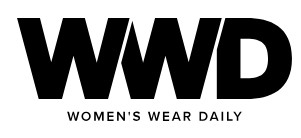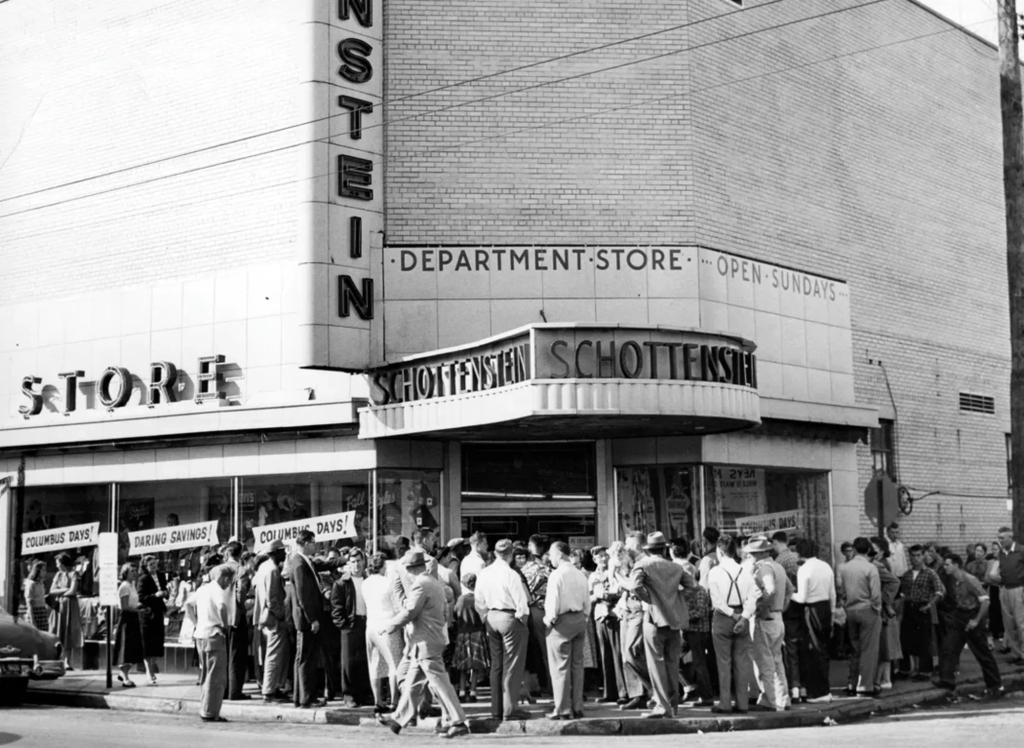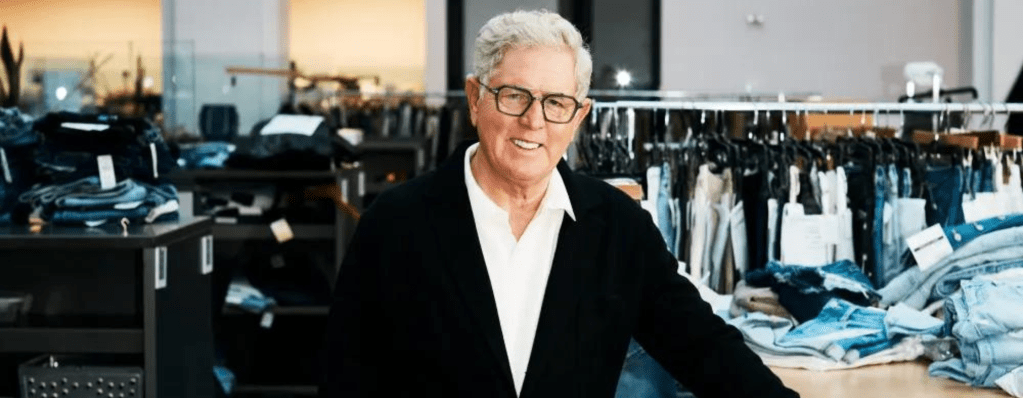
By: Evan Clark | Link to article
The American Eagle Outfitters CEO discusses his business philosophy from fashion to footwear to dealmaking.
Jay Schottenstein wasn’t just born into a retail family — he was born to be a retailer.
In the nearly 50 years since Schottenstein, 69, started working with his father at their furniture chain, he has expanded and modernizedthe family empire.
He took his lead from prior generations: His great-grandfather bought goods and sold them out of wagon, his grandfather then started a store in the early 1900s and his father’s generation developed that into department stores, a furniture company and a real estate concern.

A Schottenstein department store. COURTESY
Now, Schottenstein is chief executive officer of American Eagle Outfitters Inc. and executive chairman of DSW-parent Designer Brands Inc. — both public companies. He also has a hand in furniture with American Signature Inc., real estate with Schottenstein Property Group, winemaking through Mayacamas Vineyards, and liquidation sales, dealmaking and more with SB Capital. He was also a part of the group that backed supermarket giant Albertson’s more than $9 billion deal to buy Safeway in 2015.
It’s a lot, but Schottenstein carries it with and easy, been-there-done-that attitude.
“You got to be an optimist,” he told WWD in an interview in American Eagle’s New York design studio. “You can’t run a good retail operation without being a good optimist. If you’re not an optimist, you’re dead in this business. You have to believe the world’s getting better and you can make it better.”
That retail-ready attitude and Schottenstein’s long history in the industry will be recognized on Monday, when he’s inducted into the World Retail Congress’ Hall of Fame.
He’s in good company. Jean-Paul Agon, chairman of L’Oréal, and Supaluck Umpujh, chairwoman of The Mall Group in Thailand, were also inducted.
Ian McGarrigle, chairman of the Congress, said when the class of 2024 was first revealed: “Resilience and the capacity to adapt quickly are key qualities for any business leader, but the three Hall of Fame inductees announced today have consistently been a step ahead, anticipating challenges and spotting opportunities before others. Their careers are a testament to what it truly means to lead with foresight and agility.”
Schottenstein, at least, gets his foresight from long experience.
Jay Schottenstein, CEO of American Eagle. WESTON WELLS/WWD
Forty-seven years ago, his job was to be in the family’s furniture stores every week to ensure they were “set up the right way, making sure the merchandise displayed the right way, make sure everything’s priced the right way. If the store didn’t produce, you had to stay in that store until you got it right.”
In Columbus, Ohio, the company had four furniture stores under two different banners. The stores competed with each other for customers, but were more or less the same.
Schottenstein drew the ire of his father, Jerome, when the two chains ran nearly identical ads.
“I wasn’t even in town,” he recalled. “I said, ‘I didn’t know that was my job.’ My father gave me two words of advice. He said, ‘There’s two things that drive the business, the buying and the marketing.’ Really it changed my life because at that moment I took over the marketing of the furniture operation. That was the greatest move…because I got to really understand the marketing side of the business, what drove the business, understand the merchandise better.”
Saul, Jerome and Jay Schottenstein, circa 1987. COURTESY
The experience — which was followed by time as a store manager and other postings around the business — gave Schottenstein a holistic understanding of the industry that encompasses both nuts and bolts retail truisms and high-tech evolution.
“The key to retail is you got to turn your inventory,” Schottenstein said, stripping the business back to its roots. “You got to turn your inventory in a very efficient manner. That’s never changed. Those businesses that were successful years ago turned their inventory…otherwise they wouldn’t be around.
“Not only did I grow up in this business, I also had another division that I grew up in,” he said. “We did asset recovery liquidations. And we still do that. We have another division that specializes in running sales around the country, and we see the good and the bad on that side too. Through the years I’ve been involved in a lot of companies that went out and they had a study about why did they go out, how did it happen?”
While stores used to get tripped up by a change of ownership or a generational switch in leadership, retailers today are more likely to run into trouble over technology.
“It used to be a person could go set up a business, set up a store, it could last a long time,” Schottenstein said. “The systems didn’t change that much, right?
“But today, in the last 20 years with all the new technologies and with the evolution of the e-tail business and the online channels, innovation is even more important than it’s ever been. And you have to embrace these new technologies and you have to be able to use them…where the customer understands it, to get the benefits from it.”
To stay on the cutting edge, Schottenstein brings leaders from the various companies he’s involved in together for two- or three-day seminars with guest speakers.
“We bring economists in about what to expect,” Schottenstein said. “We bring in people who do future forecasting, what things will look like in the future, and talk about what the relevant subject is. Today, it’s AI.” American Eagle has been using machine learning to sharpen its forecasting in the area of inventory allocation and has teased plans to use AI in stores to create a better shopping experience.
And there are other areas, like RFID technology or government regulations, where the various businesses can compare notes and work together.
The various businesses gave Schottenstein a wide-angle lens on the pandemic, when he had to close 1,800 stores in one week only to later find a big surge of business when consumers did venture back out.
Now, after a few unsettled years, business is reverting back to almost-normal.
The good news, Schottenstein said, is that unemployment remains low, with a reading of 3.8 percent in March.
“People are working, that’s the most important thing,” he said. “You have to go back to make sure that you’re a good merchant. That you’re able to offer the products the customer wants, the quality they want at a price that they want to pay. And you have to go back the way it was in 2019, 2020 in the beginning, and keep that and then start figuring out how you get better at customer experiences.”
Course corrections were needed across Schottenstein’s businesses.
“DSW was the king of the career, and all of a sudden we had a transition in a very fast period to more of the casual [footwear styles] and the sneaker. They did a great job. Now they have to get the right balance there. We’ve also acquired a lot of brands and we brought some special people on there recently who understand development of product. And we’re very excited about it.”
Net sales at Designer Brands fell by 7.3 percent to $3.1 billion last year, but the company is looking to get some of that back with low-single-digit growth projected this year.
He pointed to Designer Brands’ 2022 deal to buy Topo Athletic, which was founded by Tony Post.
“They make great running shoes,” Schottenstein said. “He’s really developed a great product. You wear his shoes…they’re the most comfortable running shoes. It’s more comfortable than Hoka. It’s the most comfortable. I’ve tried ’em all on. It’s the most comfortable shoe there is.”
Schottenstein said there’s an opportunity for “a lot more deals” over the next couple years, in his retail world generally. “You’re not going to have the government giving out all the checks like the used do. So now it’s going to become about, who’s good operators. And there’ll be opportunities out there.”
American Eagle has also been busy — with its namesake business, Aerie, the Offline by Aerie subrand, Todd Snyder and Unsubscribed boosting sales by 5 percent to $5.3 billion last year, with plans to grow to as high as $6 billion in three years.
“When you think of denim, you think of two companies. Levi’s and American Eagle, and when you look where we sell our denim, in our stores, and Levi sells everywhere, it’s amazing,” Schottenstein crowed. “We’re the number one for 15- to 25-year-olds and we’re [the] number-one brand for women.”
Denim looks from American Eagle. COURTESY AEO
Schottenstein clearly enjoys boosting his various businesses, but he’s also very aware that he’s not doing it alone.
“One person can’t do it all,” he said. “And whatever success I have, it’s due to the people that I work with. It’s due to their innovation, their vision, we encourage people to become an expert in what they’re doing and they’re proud.
“Everyone in all my companies, they’re in the leadership division,” he said. “They don’t wait for me. They know what they got to do. They all work well together and they each take pride, whether it be furniture —my son runs the furniture division — he takes great pride in that; my other son runs our real estate division; I get my other son working on deals.
“The executives here at American Eagle under Jen and with Jen [Foyle, president and executive creative director for American Eagle and Aerie], they’re winners. They take great pride. They love the business. They love merchandise. To be in this business, you got to get excited about merchandise. I’ve always loved merchandise.”
It’s a love affair that’s left Schottenstein with few retail worries.
“I sleep pretty well at night,” he said. “I have a lot of great people around me.
“If one thing that would keep me up, it’s the state of the affairs of the world,” he said. “You have people out there, you have governments out there that can really put wreck havoc. The quality of the leadership in the world is scary. It’s really scary all over the world, not just in America. It’s across the world.”
That is a problem beyond the purview of retail, of course.
But Schottenstein does have a broader sense of just what it means to be a retailer and his responsibilities.
“I’ve always told all my executives that your responsibility isn’t just for yourselves. You have people who depend on us,” he said.
“I have people that work with me, they’ve been with me for 40, 50 years with all my various companies, not just one or two people. It’s amazing. It’s amazing the longevity. These people put their future into us and they’re putting their presence into us. They have families to support and we have an obligation to them too.”
And that, is retail according to Schottenstein.
